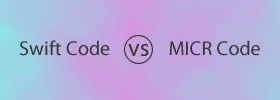Difference between Knowledge and Truth
Key Difference: Knowledge is the theoretical or practical understanding of a subject. Truth is defined as “the true or actual state of a matter.’ It is generally considered to be the same as fact or reality. Many people may not have knowledge of the truth, while knowing something does not necessarily make it true.

Most people consider Knowledge and Truth to be the exactly the same, however that is not always the case. Generally, they do mean the same thing, as knowledge is considered to be truthful, while knowing the truth is considered to be knowledge. However, there are times when knowledge does not necessarily mean the truth.
Knowledge is defined as “a familiarity, awareness or understanding of someone or something, such as facts, information, descriptions, or skills, which is acquired through experience or education by perceiving, discovering, or learning.” Basically, it is the theoretical or practical understanding of a subject. Knowledge is the understanding of some concept or idea, it is the knowing. However, it may or may not be the truth.
Truth is defined as “the true or actual state of a matter.’ It is generally considered to be the same as fact or reality. Truth is something that can’t be disputed, it is generally considered as fact, which is verifiable. Truth is something that is real, genuine and authentic. It is not something that can be false or deceitful. However, many people may not have knowledge of the truth, while knowing something does not necessarily make it true.
Let’s consider an example: In the olden days, it was common knowledge that the earth was flat and that if you sailed to the end of the earth, you will fall off the earth. This was common knowledge, everyone knew this, and believed it. However, it was not necessarily the truth. People were mistaken. We now know that the earth is round, which is the truth, as we have verified it and proved it.
 Hence, the main difference between truth and knowledge is that something is truth even if we know it or not. Similarly, we may know something, but it may not necessarily be true. Let us consider another example: a child may say that "I know Santa Claus exists." However, the truth is that Santa Claus does not exist. The child may know this and believe this, because her parents have told her that. It is her reality for now, however, when she grows up her reality will change, because she will learn the truth.
Hence, the main difference between truth and knowledge is that something is truth even if we know it or not. Similarly, we may know something, but it may not necessarily be true. Let us consider another example: a child may say that "I know Santa Claus exists." However, the truth is that Santa Claus does not exist. The child may know this and believe this, because her parents have told her that. It is her reality for now, however, when she grows up her reality will change, because she will learn the truth.
Another example: John and Mary were best friends. After some time, John stopped hanging out with Mary, claiming that he needed time to himself. However, the truth was that Tom had told John lies about Mary, and has driven a wedge between them. Still, Mary has no knowledge of this fact, however, is does not stop being true.
Image Courtesy: careerminer.infomine.com, stevecha.net









Add new comment